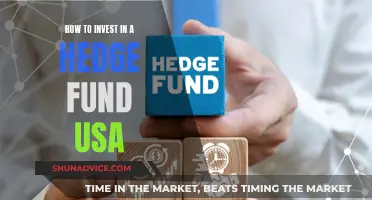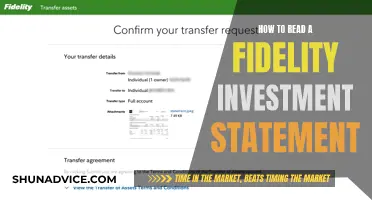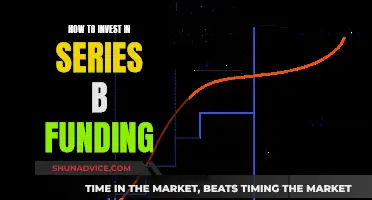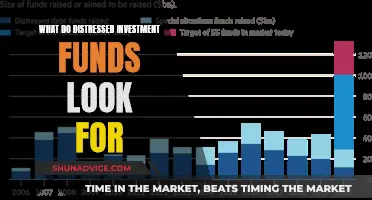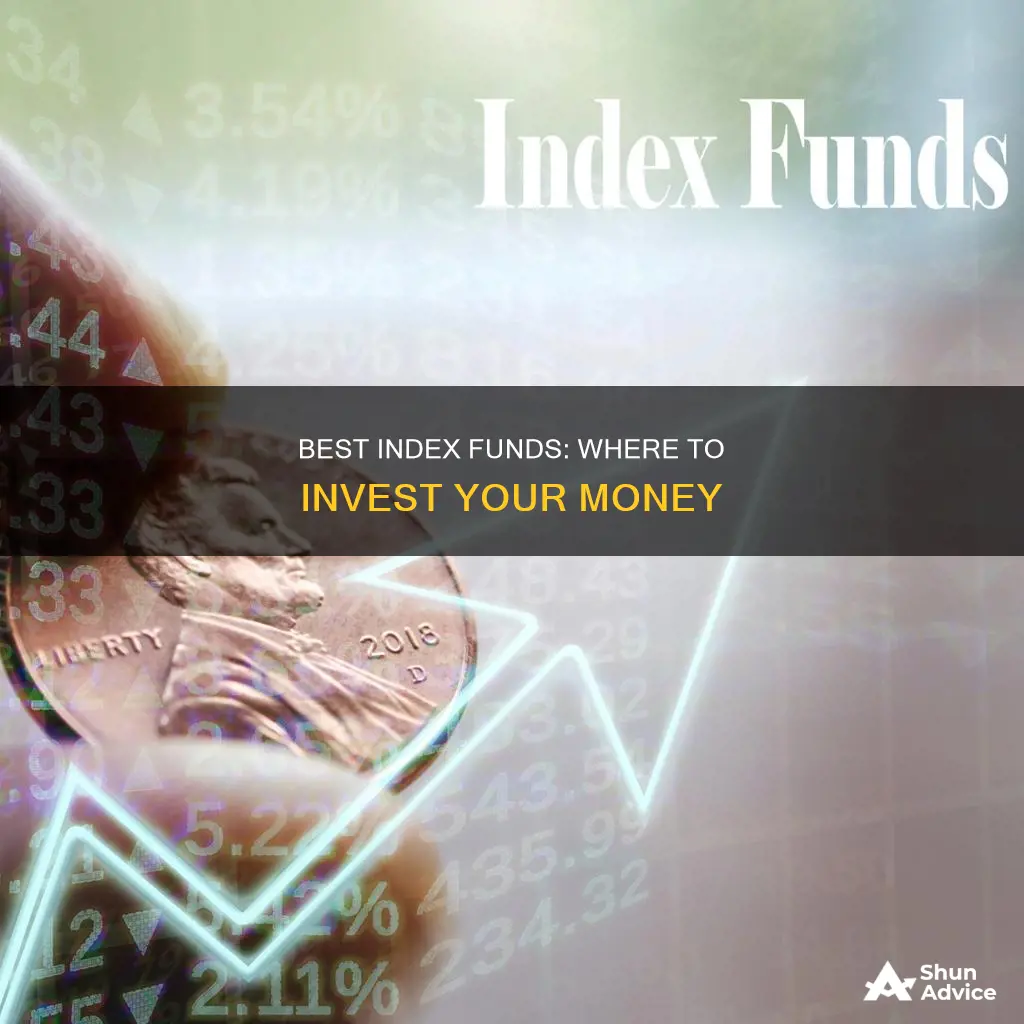
Index funds are a passive investment strategy that aims to replicate the performance of a particular market index, such as the S&P 500 or the Dow Jones Industrial Average. By investing in an index fund, you gain exposure to a diverse range of stocks or bonds that make up the underlying index. This diversification can lead to lower risk and stronger long-term returns compared to investing in individual stocks.
When choosing an index fund to invest in, it's important to consider factors such as the fund's expense ratio, investment minimum, and how closely it tracks the performance of the index. Here are some of the best index funds to consider, based on these criteria:
- Vanguard S&P 500 ETF (VOO): Tracks the S&P 500 index, one of the most widely followed stock market indices. It has a low expense ratio of 0.03%.
- Fidelity ZERO Large Cap Index (FNILX): Tracks the Fidelity U.S. Large Cap Index, which is similar to the S&P 500. This fund stands out for having a 0% expense ratio.
- Schwab S&P 500 Index Fund (SWPPX): Another S&P 500 index fund with a low expense ratio of 0.02% and no minimum investment amount.
- Vanguard Russell 2000 ETF (VTWO): Tracks the Russell 2000 Index, providing exposure to small- and mid-cap companies. It has a relatively low expense ratio of 0.10%.
- Vanguard Total Stock Market ETF (VTI): Offers broad diversification by tracking an index of small, medium, and large companies across all sectors. It has a low expense ratio of 0.03%.
- Invesco QQQ Trust ETF (QQQ): Tracks the Nasdaq-100 Index, which is heavily weighted in technology shares. It has a slightly higher expense ratio of 0.20%.
What You'll Learn

Vanguard S&P 500 ETF
The Vanguard S&P 500 ETF (VOO) is a good investment option for those looking for a broadly diversified index fund at a low cost. This ETF began trading in 2010 and is backed by Vanguard, a powerhouse in the fund industry. With an expense ratio of 0.03%, it is relatively low cost, meaning that for every $10,000 invested, you would pay $3 annually.
The fund has a strong 5-year annualized return of 16.0%, and its performance closely tracks the S&P 500, one of the most widely followed stock market indices in the world. This means that the fund's holdings are determined by the S&P 500 index, and it aims to replicate the performance of this underlying index.
The Vanguard S&P 500 ETF is a passively managed fund, meaning it is not actively managed by a team of analysts and portfolio managers. This passive management style contributes to its low costs, leaving more of the returns for investors.
This fund can be purchased directly from Vanguard or through most online brokers. It is a good option for investors looking for a low-cost, broadly diversified fund to serve as a core holding in their portfolio.
Index Funds: Where to Start and What to Know
You may want to see also

Fidelity ZERO Large Cap Index
The Fidelity ZERO Large Cap Index Fund is a mutual fund with no expense ratio. While it does not officially track the S&P 500, it follows the Fidelity U.S. Large Cap Index. This means that investor-friendly Fidelity does not have to pay a licensing fee to use the S&P name, keeping costs lower for investors.
The fund's performance closely mirrors that of the S&P 500. As of mid-May 2024, it was up by about 12%, almost identical to the S&P 500 index's year-to-date gains. The fund's top holdings as of August 31, 2024, include Meta Platforms Inc Class A, Alphabet Inc Class A and Class C, and Berkshire Hathaway Inc Class B.
The Fidelity ZERO Large Cap Index Fund is a good choice for investors looking for a broadly diversified index fund at a low cost to serve as a core holding in their portfolio. It can be purchased directly from the fund company or through most online brokers, and there is no minimum investment amount, making it a good option for beginning investors.
Actively Managed Funds: Where to Invest Your Money?
You may want to see also

Vanguard Russell 2000 ETF
The Vanguard Russell 2000 ETF (VTWO) is a good choice for investors who want to take advantage of the potential upside of investing in small-cap companies. The fund began trading in 2010 and is managed by Vanguard, a company known for its focus on keeping costs low for investors. With an expense ratio of 0.10%, it is relatively inexpensive, meaning that for every $10,000 invested, you would pay $10 annually.
As of December 31, 2023, the largest concentrations of this index fund were in industrials (19.3%), financials (15%), and healthcare (14.8%). The fund's median market capitalization was $2.9 billion, and it invests in 1,960 small- and mid-cap companies.
The Vanguard Russell 2000 ETF has a strong long-term performance, with a 5-year annualized return of 9.4% as of September 30, 2024. This fund is a good option for investors seeking a low-cost fund that provides broad exposure to small-cap companies. It can be purchased directly from Vanguard or through most online brokers.
Roth Funds: Where to Invest and Why
You may want to see also

Vanguard Total Stock Market ETF
The Vanguard Total Stock Market ETF is an excellent choice for investors seeking a low-cost, broadly diversified index fund. Here's a detailed overview:
Overview
The Vanguard Total Stock Market ETF (VTI) is a passively managed exchange-traded fund (ETF) offered by Vanguard, one of the leading companies in the fund industry. This ETF provides investors with exposure to the entire universe of publicly traded stocks in the US market. It includes small, medium, and large companies across all sectors, giving investors a truly diversified portfolio. The fund started trading in 2001, providing a long track record for analysis.
Performance
The Vanguard Total Stock Market ETF has delivered solid returns over the years. As of September 2024, its 5-year annualized return was 15.2%, slightly lower than the S&P 500's long-term average of about 16%. However, it's important to remember that past performance doesn't guarantee future results.
Expense Ratio
One of the biggest advantages of this ETF is its low expense ratio. With an expense ratio of just 0.03%, it is highly competitive and cost-effective. This means that for every $10,000 invested, you would pay only $3 in fees annually. This low expense ratio helps maximize investors' returns over time.
Suitability
The Vanguard Total Stock Market ETF is well-suited for investors seeking broad diversification across the market-cap spectrum. It is ideal for those looking for a low-cost, passive investment strategy that tracks the overall US stock market. This ETF provides exposure to a wide range of companies and sectors, reducing the risk associated with investing in individual stocks or a specific sector.
How to Buy
Investors can purchase the Vanguard Total Stock Market ETF directly from Vanguard or through most online brokers. It is easily accessible and provides a simple way to invest in a diversified portfolio of US stocks.
Corporate Bond Funds: When to Invest for Maximum Returns
You may want to see also

SPDR Dow Jones Industrial Average ETF Trust
The SPDR Dow Jones Industrial Average ETF Trust is an exchange-traded fund (ETF) that aims to provide investment results that mirror the performance of the Dow Jones Industrial Average (DJIA). The DJIA is a price-weighted index composed of 30 "blue-chip" US stocks and is the oldest continuing US market index.
The SPDR Dow Jones Industrial Average ETF Trust has a gross expense ratio of 0.16%, which means that for every $10,000 invested, you would pay $16 annually. The fund has tens of billions in assets under management and is one of the earlier ETFs, having debuted in 1998.
This ETF provides exposure to large-cap stocks and is suitable for investors looking for a low-cost way to gain access to blue-chip companies or the specific components of the DJIA. It can be purchased directly from the fund company or through most online brokers.
As with any investment in the stock market, there are risks involved. The fund's investments are subject to changes in general economic conditions, general market fluctuations, and the risks inherent in investing in securities markets. Additionally, the ETF shares may trade at significant discounts during periods of market stress.
The top holdings of the fund as of September 26, 2024, include UnitedHealth Group Inc, Goldman Sachs Group Inc, and Visa Inc Class A Shares.
Maximizing Your Roth IRA: Alternative Investment Options
You may want to see also
Frequently asked questions
Some of the best index funds to invest in include the Vanguard S&P 500 ETF, the SPDR S&P 500 ETF Trust, the iShares Core S&P 500 ETF, the Schwab S&P 500 Index Fund, and the Fidelity ZERO Large Cap Index.
The Fidelity ZERO Large Cap Index and the Invesco NASDAQ 100 ETF are two of the best index funds for beginners.
The Shelton NASDAQ-100 Index Direct and the Invesco QQQ Trust ETF are two of the best index funds for the NASDAQ-100 index.
The Vanguard FTSE All-World ex-US ETF/Index and the Vanguard Total International Stock ETF/Index are two of the best international index funds.


